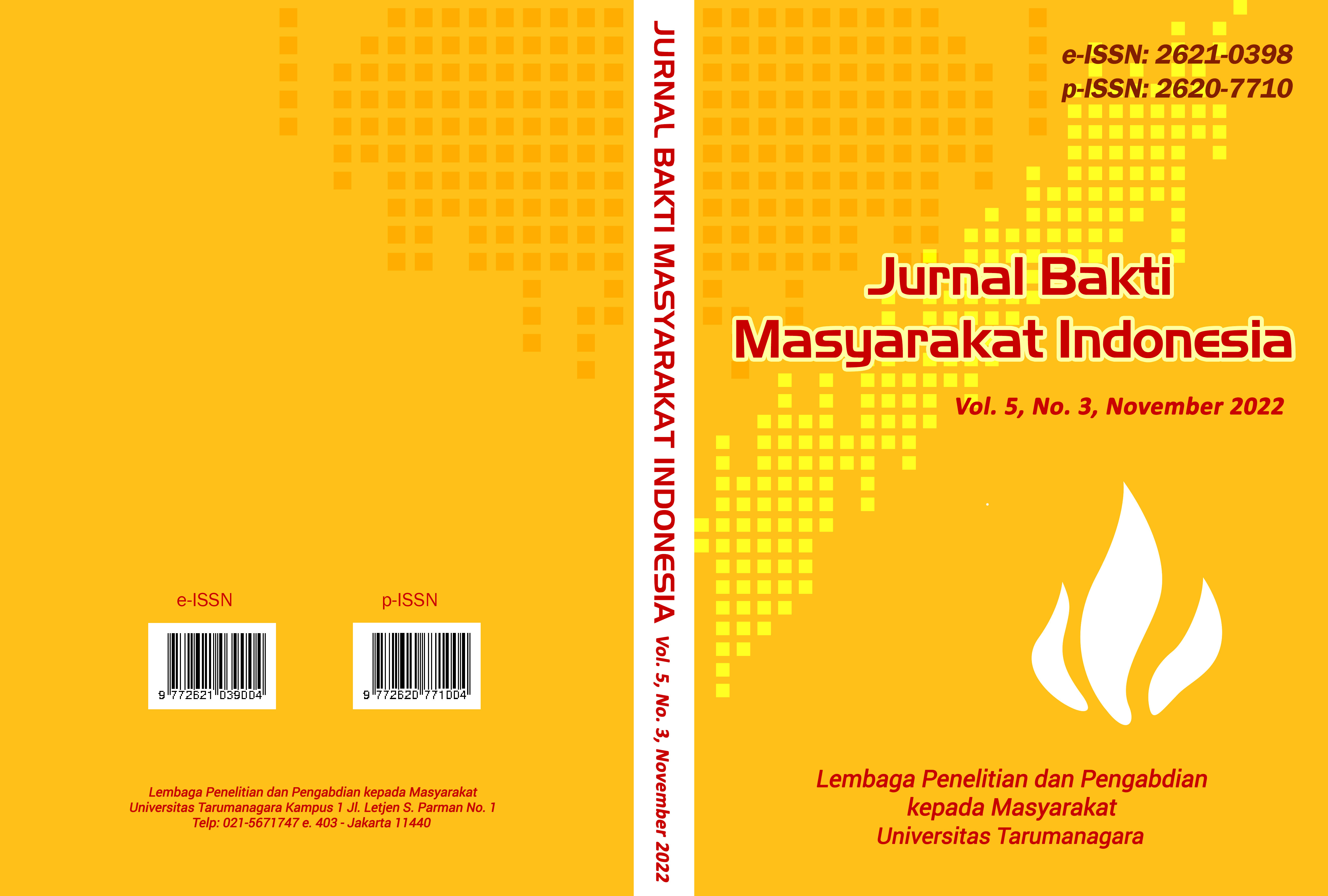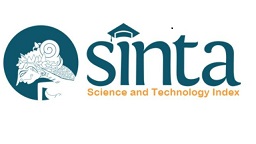EDUKASI EKSISTENSI DAN KEBERLANJUTAN KAWASAN BERSEJARAH UNTUK GENERASI Z
Main Article Content
Abstract
The Old City of Jakarta has a strong significance for the long history of the development of the City of Jakarta. Generation Z, which will later hold the continuity of the nation's culture, needs to understand the importance of the existence and sustainability of historic areas. The activity partners were 7 (seven) people (aged 16-22 years) At-Taufiq Tanjung Gedong Mosque youth, West Jakarta. Generation Z is a generation that has characteristics close to technology, makes more use of interacting through social media, actively expresses itself, and moves quickly (fast switcher) so learning media with an innovative approach are needed for generation Z. As a response to problems that partners have, then the implementing team provides activity solutions with critical thinking and creative thinking approaches in the form of educational activities on the existence and sustainability of historic areas for partners. The approach is qualitative, where data is obtained through empirical experience and questionnaires analyzed descriptively. The qualitative approach applied is the Experiential Learning Discovery Journey in 3 (three) stages, namely the experience stage through the delivery of the material as part of the introduction, the observation stage with a visit to the Kota Tua Jakarta area, and the reflection stage through a reflection instrument. Based on the results of the activity, it is known that partners have had theoretical experience about the existence and benefits of historical areas obtained from the school. The community service activities (PkM) that have been carried out provide new experiences in the creative process to understand the PkM topic, namely the existence and sustainability of historic areas for generation Z.
Keywords: historic area education; Experiential Learning Discovery Journey; generation z
Abstrak
Kota Tua Jakarta memiliki signifikansi kuat bagi sejarah panjang perkembangan Kota Jakarta. Generasi Z yang nanti akan memegang keberlanjutan budaya bangsa, perlu memahami pentingnya eksistensi dan keberlanjutan dari kawasan bersejarah. Mitra kegiatan adalah 7 (tujuh) orang (berusia 16-22 tahun) Remaja Masjid At-Taufiq Tanjung Gedong, Jakarta Barat. Generasi Z merupakan generasi yang memiliki karakteristik dekat dengan teknologi, lebih memanfaatkan berinteraksi melalui media sosial, aktif mengekspresikan diri, dan cepat berpindah (fast switcher) sehingga diperlukan media pembelajaran dengan pendekatan yang inovatif bagi kalangan generasi Z. Sebagai respon dari permasalahan yang dimiliki mitra, maka tim pelaksana memberikan solusi kegiatan dengan pendekatan critical thinking dan creative thinking berupa kegiatan edukasi eksistensi dan keberlanjutan kawasan bersejarah bagi mitra. Pendekatan yang digunakan adalah kualitatif, dimana data diperoleh melalui pengalaman empiris dan kuesioner yang dianalisis secara deskriptif. Pendekatan kualitatif yang diterapkan yaitu Experiential Learning Discovery Journey dalam 3 (tiga) tahapan, yaitu tahap pengalaman melalui penyampaian materi sebagai bagian dari pengenalan, tahap observasi dengan kunjungan ke Kawasan Kota Tua Jakarta, dan tahap refleksi melalui instrumen refleksi. Berdasarkan hasil kegiatan, diketahui bahwa mitra telah memiliki pengalaman teoretis tentang eksistensi dan manfaat kawasan bersejarah yang diperoleh dari bangku sekolah. Kegiatan pengabdian kepada masyarakat (PkM) yang telah dilakukan memberikan pengalaman baru dalam proses kreatif untuk memahami topik PkM yaitu eksistensi dan keberlanjutan kawasan bersejarah bagi generasi Z.
Article Details

This work is licensed under a Creative Commons Attribution-NonCommercial-ShareAlike 4.0 International License.
This work is licensed under a Jurnal Bakti Masyarakat Indonesia https://creativecommons.org/licenses/by-nc-sa/4.0/
References
Brahmantyo, K (2021). Pengantar Ilmu Ilmu Sejarah. Direktorat Pembinaan Tenaga dan Lembaga Kebudayaan (PTLK), Direktorat Jenderal Kebudayaan, Kementerian Pendidikan, Kebudayaan, Riset, dan Teknologi.
Cauvin, T. (2019). Public History as an Interconnect Tree. https://twitter.com/thomascauvin/status/1194283070062391296
Masterplan Pariwisata - TPP WSSTB Kemenpar 2017. (2017).
Masterplan Pariwisata - TPP WSSTB Kemenpar 2018. (2018).
Mawarni, I. A. S. D., Akbar, R., & Mukhlis, A. M. A. (2019). Design Thinking Sebagai Metode Edukasi Kreatif Anak Usia Remaja. Prosiding Konferensi Nasional Pengabdian Kepada Masyarakat Dan Corporate Social Responsibility (PKM-CSR), 2, 984–991. https://doi.org/10.37695/pkmcsr.v2i0.611
Naredi, H. (2019). Pendidikan Sejarah untuk Generasi Millenial dalam Tantangan Revolusi Industri 4.0. Seminar Nasional Sejarah Ke 4 Jurusan Pendidikan Sejarah Universitas Negeri Padang, 343–351.
Rastati, R. (2018). Media Literasi Bagi Digital Natives: Perspektif Generasi Z Di Jakarta. Kwangsan: Jurnal Teknologi Pendidikan, 6(1), 60–73. https://doi.org/http://dx.doi.org/10.31800/jtp.kw.v6n1.p60-73
Solikhah, N. (2021). Sejarah Arsitektur untuk Generasi Z. In F. Liauw (Ed.), Pendidikan Arsitektur Tanggap Bencana dan Tren (pp. 52–71). LPPI UNTAR (UNTAR PRESS).
Sukatin, Ma’ruf, A., Putri, D. M., Karomah, D. G., & Hania, I. (2021). Urgensi Pendidikan Karakter Bagi Remaja Di Era Digital. SOSAINS: Jurnal Sosial Dan Sains, 1(9), 1101–1111. https://doi.org/https://doi.org/10.36418/sosains.v1i9.205
Tovar, L. A., & Misischia, C. (2018). Experiential learning : transformation and discovery through travel study programs. Research in Higher Education Journal, 35, 1–15.






